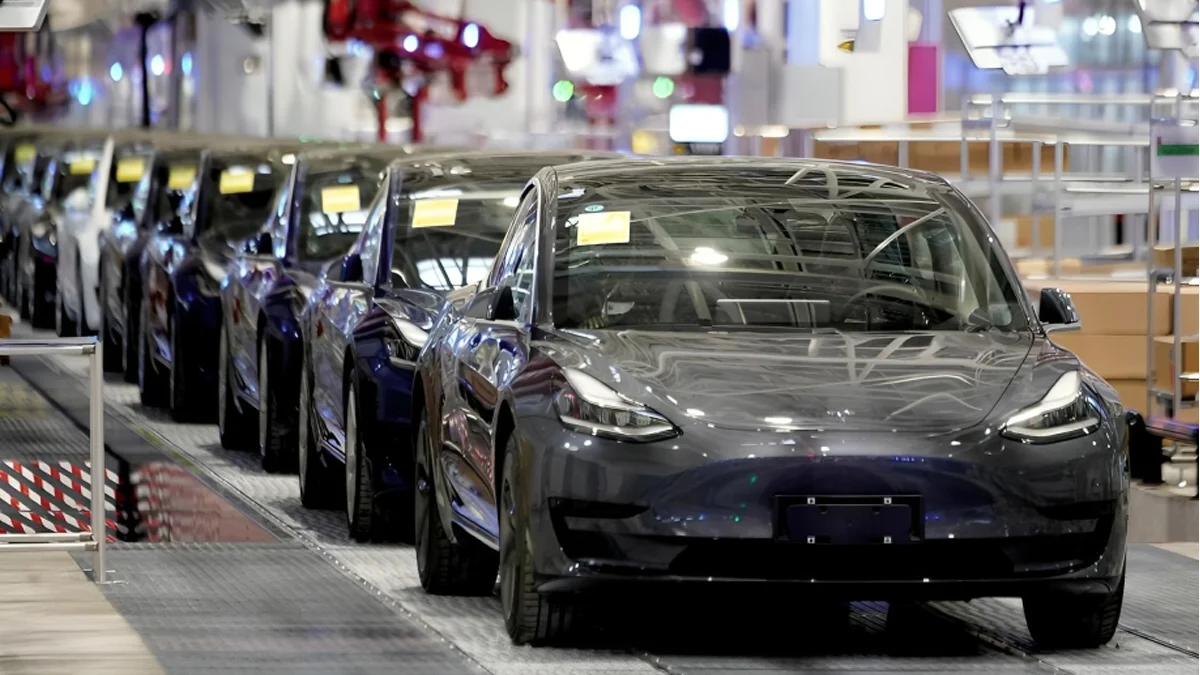Necessary Always Active
Necessary cookies are required to enable the basic features of this site, such as providing secure log-in or adjusting your consent preferences. These cookies do not store any personally identifiable data.
|
||||||
|
||||||
|
||||||
|

The EU has reduced tariffs on Tesla EVs imported from China by more than 50%. Tesla’s lower tariffs give the US-based company a competitive advantage over rival EV makers and boost future sales in the region.
According to Reuters, the European Commission revised proposed tariffs on imported Chinese-manufactured EVs. Tesla’s Chinese made EVs low tariff rate has provoked retaliation from Beijing.
The EU’s Tesla EV tax cut decision comes barely two months after the region imposed high tariffs on EV imports from China. The EU cited unfair subsidies that benefit Chinese EV makers and disadvantage EU manufacturers.
Tesla operates a factory close to Berlin. However, it exports most of the cars it manufactures in China to the European market. The company had asked the EU to recalculate its tariff rates which were initially set at 20.8%.
Early this week, the European Commission headed to this request and reduced the rates downwards to 9%. In addition to this rate, Tesla must pay the current 10% duty on all EV imports. But the total tariff is well below the 36.3% maximum that’s levied on other Chinese manufacturers.
According to the Commission, the tariff reflects the subsidy level that Tesla received in China.
“The Commission verified the information during a visit to China and conducted the same checks as of the other sampled Chinese exporting producers,” the Commission said in a statement.
Rhodium Group’s senior analyst, Gregor Sebastian expressed surprise at Tesla’s 9% additional tariff rate. He cited local loans that the EV maker received from the government in Shanghai and the subsidized batteries from CATL, the Chinese battery maker.
“It’s tricky to make a strong argument here without seeing all the inputs and methodology the Commission used,” he added.
Speaking to CNN, Sebastian said the duty will be negative for Tesla. But unlike SAIC, it will give the EV maker some breathing space. SAIC owns the iconic MG vehicle brand. It’s China’s state-owned EV maker and Tesla’s main competitor in Europe.
SAIC has been slapped with a 36.3% non-cooperating tariff and EV company, Geely, was hit with a 19.3% additional tariff. Chinese EV company BYD must pay 17% in additional tariffs to export EVs to the EU. BYD and Tesla are fighting for the largest EV battery seller title. Last year, BYD beat Tesla in EV battery production.
The Commission said these duties are slightly lower compared to those that had been proposed in June. This change was a result of inputs from EV makers and thorough investigations. Chinese car makers that have entered into joint ventures with EU manufacturers could benefit from the EU’s lower tax on Chinese EVs that have now been set at 21.3%.
On Tuesday, the Commerce Ministry in China strongly opposed the EU’s ruling on Tesla Chinese-made EVs and expressed deep concerns. In a statement released by the Ministry, China termed EU investigation findings as distorted.
The ministry said it would “resolutely defend the legitimate rights and interests of Chinese companies.”
The price of Tesla’s Model 3 rose by 4% when initial EU tariffs took effect last month. Even with the price hike, Model 3 was still cheaper than BYD’s Seal in the European market. The latest EU tax cut on Chinese-made EVs will make Model 3 cheaper.
“Now, with Tesla’s additional tariff being reduced, Model 3 will remain competitive with other Chinese-made EVs in Europe,” Automotive Research Analyst George Whitcombe told CNN.
Even with the high additional tariffs, BYD has not hiked the prices of its EVs in Europe.
“BYD has a much better ability to absorb these additional duties because production costs are much lower compared to their prices in Europe,” Sebastian said.
BYD could also grow exports of plug-in hybrid EVs that Tesla does not manufacture, This will allow it to circumvent the tariffs that currently apply only to battery EVs. Last month, BYD signed a deal to set up an EV plant in Turkey. This move could see it avoid EU tariffs altogether.